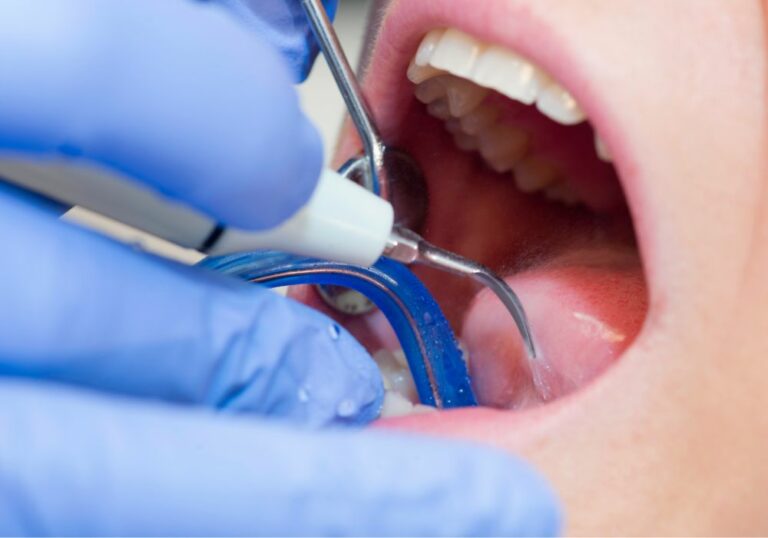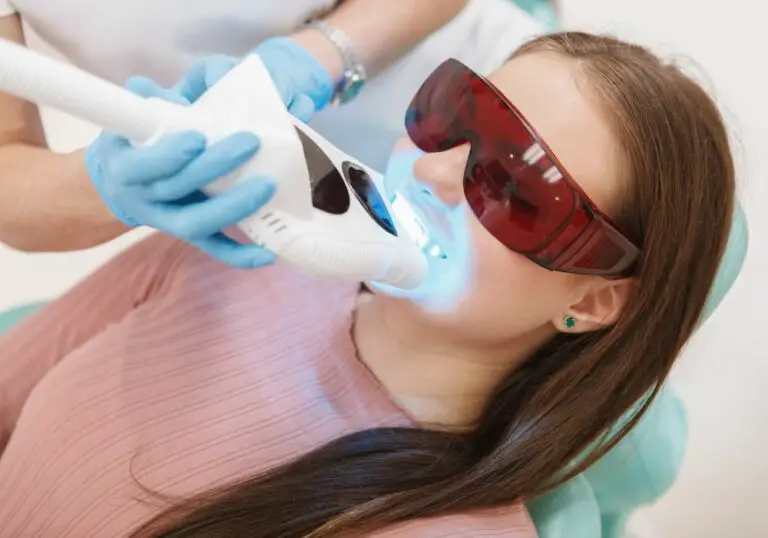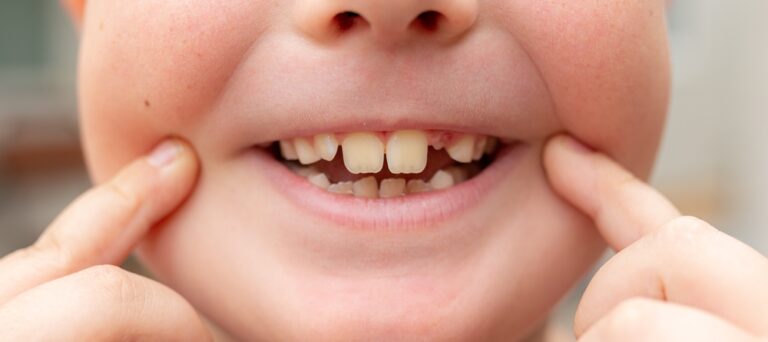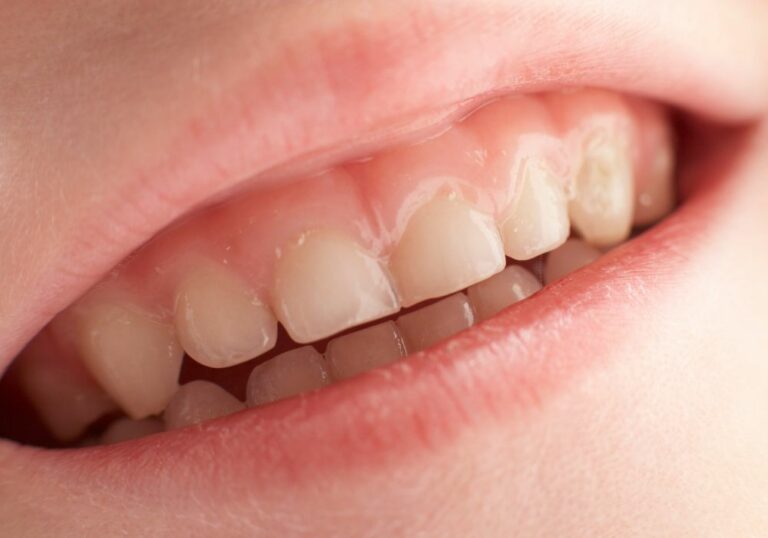Toothpaste is a daily oral hygiene essential used by people of all ages. But some individuals report developing dry mouth and lips after brushing with certain toothpastes. This article takes an in-depth look at the potential link between toothpaste and dry mouth.
How toothpaste works to clean teeth
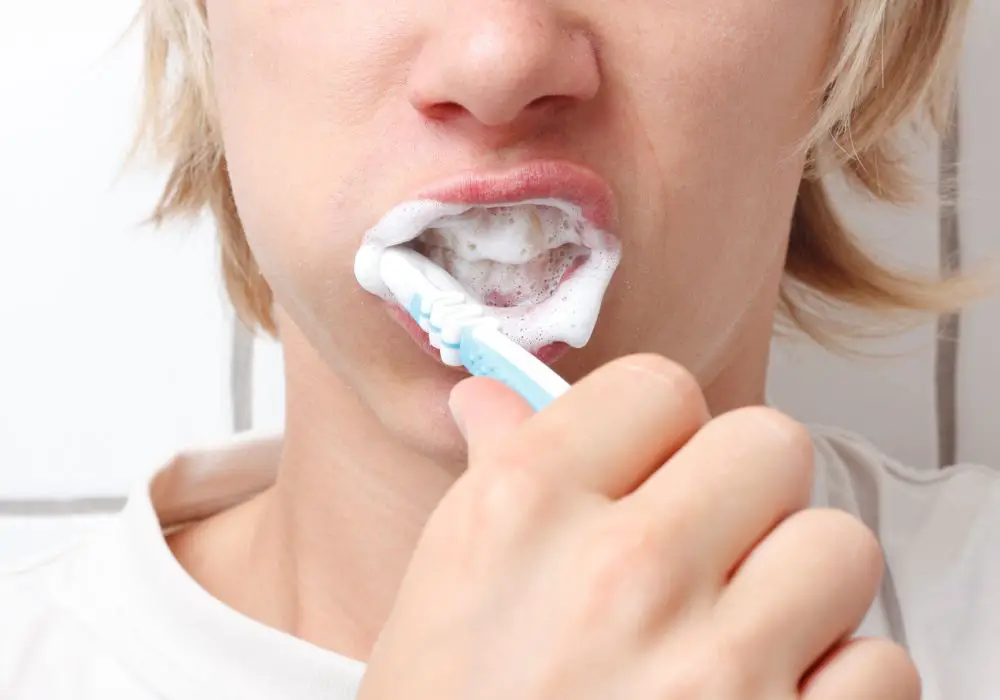
Before analyzing if toothpaste causes dryness, let’s review how toothpaste cleans and protects the teeth:
- Abrasives like silica, calcium carbonate, and alumina gently scrub the teeth to remove food debris, plaque, and surface stains. They polish and brighten the teeth.
- Detergents/surfactants like sodium lauryl sulfate (SLS) and sodium laureth sulfate (SLES) generate foam and help dislodge plaque. They also allow the toothpaste ingredients to penetrate dental grooves.
- Binders like carrageenan and hydroxyethyl cellulose give toothpaste its thick, creamy texture and keep the components evenly mixed.
- Humectants like glycerin, sorbitol, and polyethylene glycol prevent toothpaste from drying out in the tube by retaining moisture.
- Flavors & sweeteners like menthol, sodium saccharin, and xylitol give toothpaste its minty, sweet taste. They also provide a cooling sensation and freshen breath.
- Fluoride helps prevent cavities by strengthening tooth enamel and protecting against decay. It also fights bacteria.
- Antimicrobial agents like cetylpyridinium chloride, triclosan (banned from hand soaps but still allowed in toothpastes), and essential oils kill oral bacteria that cause plaque, gingivitis, bad breath, and infections.
- Anti-tartar agents like Tetrasodium Pyrophosphate prevent mineral deposits that harden into calculus or tartar. This tartar traps more plaque.
- Whitening agents like hydrogen peroxide, baking soda, and activated charcoal lighten tooth stains to brighten smiles.
- Desensitizing agents like strontium chloride or potassium nitrate block pain signals from exposed dentin and soothe sensitive teeth.
- Anti-cavity/remineralizing agents like sodium phosphate, calcium sodium phosphosilicate, amorphous calcium phosphate help redeposit minerals into enamel to repair early decay.
So every ingredient in toothpaste has a specific purpose, with the overall goals of cleaning teeth, fighting plaque and bacteria, freshening breath, and protecting enamel. But could any of these active ingredients also dry out the mouth? Let’s explore further.
Toothpaste ingredients that may cause dry mouth
Some specific ingredients added to toothpaste for its cleansing, foaming, flavoring, whitening, or other benefits could potentially also contribute to dry mouth in the following ways:
Sodium lauryl sulfate (SLS)
SLS is a common foaming agent added to many personal care products like shampoo and soap. It helps toothpaste spread throughout the mouth and between teeth. SLS also dissolves and activates stain-removing ingredients.
However, a few studies have linked SLS with reducing saliva production and causing mouth dryness after use, especially with repeated exposure.
A study published in the International Journal of Dental Hygiene found that rinsing with an SLS-containing mouthwash twice daily for 2 weeks significantly decreased salivary flow rate and left the mouth drier compared to a control rinse without SLS.
Researchers believe SLS may dry out and temporarily irritate oral membranes, including the salivary glands. This could inhibit their function and saliva secretion. However, more research is still needed to establish the mechanism.
SLS-free toothpastes may help alleviate post-brushing dry mouth in those sensitive to SLS.
Alcohol
Some whitening toothpastes and mouthwashes contain alcohol to help disperse and activate bleaching ingredients like hydrogen peroxide or menthol. But alcohol has a drying effect. Swishing it around the mouth multiple times per day could exacerbate dry mouth.
Abrasives
Abrasives like silica or alumina provide the scrubbing action to remove stains. But excessively high amounts or large particles could potentially irritate and inflame oral soft tissues. This may worsen mouth dryness in some individuals.
Flavors and sweeteners
The mint, wintergreen, and cinnamon oils that give toothpaste its fresh taste contain compounds like menthol and eugenol. At high concentrations, these flavors may irritate and dry the mouth, especially in those already prone to dry mouth.
Artificial sweeteners like saccharin and sorbitol can have similar drying effects when used in excess amounts.
Whitening agents
Ingredients like hydrogen peroxide, baking soda, or activated charcoal help bleach stains – but they also extract moisture from the mouth while doing so. Most whitening toothpastes recommend rinsing the mouth after brushing to mitigate this temporary dryness.
Alcohol-based mouthwashes
Using alcohol-containing antibacterial mouthwashes like Listerine twice daily could worsen dry mouth. The alcohol evaporates moisture while killing oral bacteria.
So in theory, ingredients like SLS, abrasives, alcohol, bleaching agents, flavors, and antimicrobials – when used in excess – could contribute to dry mouth, especially if someone already has decreased saliva flow.
However, more clinical studies are still needed to determine if reducing or removing these toothpaste ingredients reverses dry mouth symptoms.
Common causes of dry mouth
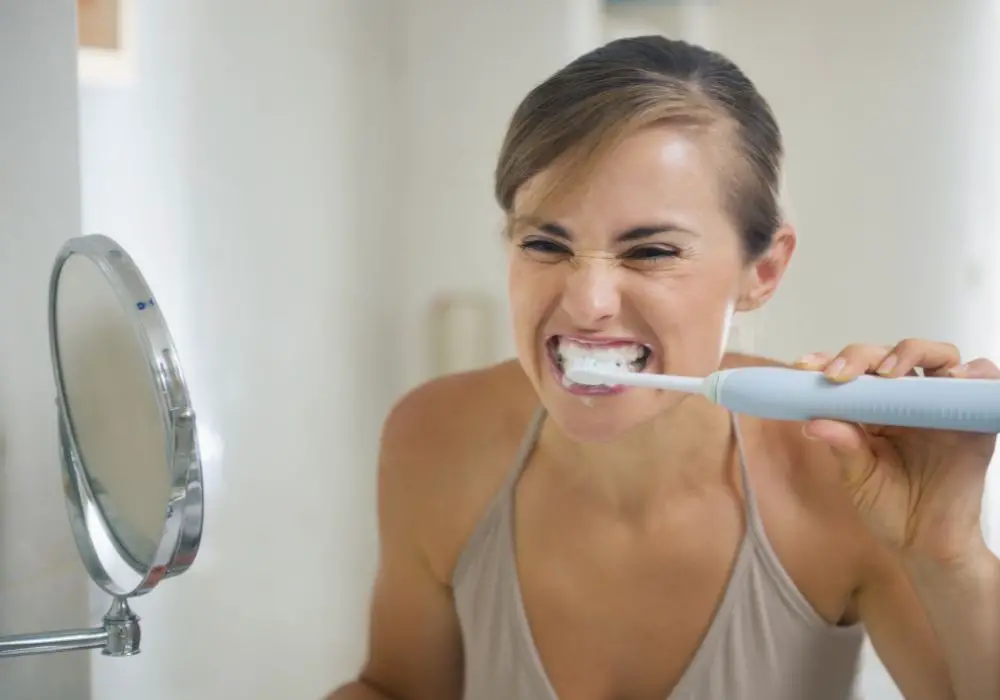
Before blaming toothpaste as the culprit, it’s important to understand the most common causes of dry mouth:
Medications
Hundreds of prescription and OTC medications list dry mouth as a potential side effect. These include:
- Antihistamines
- Antidepressants
- Muscle relaxants
- Decongestants
- High blood pressure medications
- Opioid pain relievers
- Antipsychotics
- Diuretics
- Parkinson’s disease drugs
- Seizure medications
These medicines impact how the salivary glands work, reducing their ability to secrete saliva.
Medical conditions
Saliva production can be compromised by certain autoimmune disorders, endocrine disorders, cancers, infections, nerve damage, vitamin deficiencies, etc.
Sjögren’s syndrome is a systemic autoimmune disease characterized by severe dry mouth and dry eyes due to lymphocytic infiltration of moisture-secreting glands. Rheumatoid arthritis and lupus are also associated with mouth dryness.
Type 1 and 2 diabetes cause elevated blood glucose that may impair salivary gland function.
Hormonal changes during menopause, androgen deficiency, hypothyroidism, or premature ovarian failure can reduce saliva.
Cancers like head and neck cancers and their treatments like radiation or chemotherapy damage the salivary glands.
Infections like HIV, hepatitis C, influenza, mumps, tuberculosis, diphtheria, and mononucleosis are linked to temporary dry mouth symptoms during illness.
Fungal infections like oral thrush coat the mouth and tongue leading to further dryness.
Nerve damage in conditions like Bell’s palsy, Parkinson’s disease, or due to injury/surgery can disrupt signals between the nervous system and salivary glands.
Vitamin and mineral deficiencies, especially of iron, zinc, folate, and vitamins B6 and B12, are associated with reduced saliva.
So in most people, an underlying health condition is responsible for diminished saliva secretion and dry mouth. Toothpaste is unlikely to be the sole cause, but may compound the problem.
Aging
Saliva production naturally decreases as we age. Older adults are more prone to dry mouth due to age-related changes in salivary glands and their nerves and ducts. Chronic medical conditions and medications also increase with age, contributing to dry mouth.
Habits
Lifestyle factors like smoking, drinking alcohol, caffeinated beverages, and poor hydration depress saliva secretion. Breathing through the mouth, especially at night, allows moisture to evaporate. Stress and anxiety also inhibit salivary flow.
So when assessing dry mouth, identify and manage any underlying systemic health conditions, chronic medications, or habits that could be reducing saliva. Switching toothpastes can provide some relief but won’t treat the root problem.
Dental issues associated with dry mouth

With reduced cleansing and antimicrobial action of saliva, dry mouth allows cavity-causing oral bacteria to flourish. It increases the risk for various problems:
Tooth decay
Saliva washes away food debris and neutralizes damaging acids produced by plaque bacteria after eating sugary or acidic foods. Diminished saliva results in excess plaque buildup and prolonged acid attacks that demineralize and erode tooth enamel, causing cavities.
Gingivitis
The gums become inflamed and bleed easily due to plaque accumulation along the gumline. Lack of saliva prevents diluting and flushing away this bacteria.
Periodontitis
Chronic dry mouth enables plaque bacteria to spread below the gumline and into deeper periodontal pockets. This erodes the gums and jawbone supporting the teeth.
Halitosis
Reduced saliva flow allows odor-causing bacteria to multiply, causing bad breath. Dry mouth and thick mucus also causes unpleasant odors.
Burning mouth syndrome
Some people with dry mouth feel a persistent burning or scalding sensation on their tongue, gums, palate, or throughout the mouth. It may be due to irritation from enzymes in saliva that aren’t diluted by normal moisture levels.
Taste impairment
Saliva helps dissolve and lubricate food particles to transmit flavors to taste buds. Insufficient saliva alters taste perception.
Difficulty speaking, swallowing, chewing
Dry sticky tissues make it harder to speak clearly, chew food, and swallow comfortably. Dentures may not fit properly.
Mouth sores, cracks at lip corners
Dry rough tissues are more prone to trauma and irritation. Lack of protective salivary proteins increases susceptibility to painful canker sores.
Oral thrush
A candida fungal overgrowth thrives in the parched oral environment, coating the tongue and mouth.
Impaired denture retention
Dentures rely on a thin film of saliva to stick to tissues. Reduced saliva causes loosening and discomfort.
Increased dental decay risk with braces
Fixed orthodontic appliances trap more plaque. Adequate saliva flow is needed to dilute acids and supply calcium and phosphate to protect enamel from decalcification.
So dry mouth detrimentally affects oral health and dental treatment outcomes. That’s why managing it is critical for dental wellbeing.
Do saliva substitutes and salivary stimulants help?
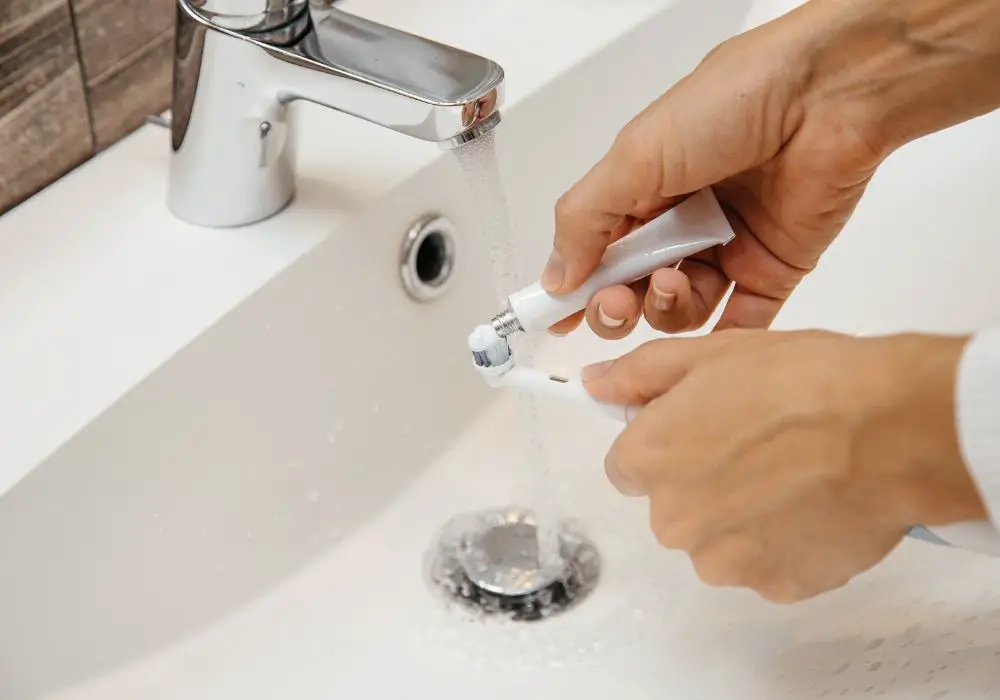
While addressing any underlying condition is key, over-the-counter oral moisturizing products can temporarily provide relief when natural saliva is lacking:
- Saliva substitutes like Biotene, Oasis moisturizing mouth spray, and Oral Balance gel help coat and lubricate the mouth. They typically contain glycerin, carboxymethyl cellulose, electrolytes, and flavors.
- Saliva stimulants have ingredients like citric acid, malic acid, and xylitol that stimulate saliva production from functioning salivary glands. Examples are Biotene dry mouth gum/lozenges, XyliMelts discs, and sour lemon candies.
- Mucoadhesive formulas like Oravig dental gel contain moisturizing ingredients as well as mint and xylitol to stimulate some saliva flow while adhering to tissues.
- Fluoride rinses like ACT Dry Mouth rinse moisturize while supplying fluoride to fight decay.
OTC saliva products provide temporary relief but don’t address underlying causes. They may be especially helpful at night. Sugar-free versions reduce the caries risk.
Discuss ongoing dry mouth management with your dentist and doctor.
Can changing toothpastes help with dry mouth?
While toothpaste isn’t the root problem behind dry mouth, avoiding toothpastes with irritating ingredients may provide some relief and prevent worsening of symptoms.
Ask your dentist to recommend the best toothpaste for your situation. Here are some general tips for minimizing toothpaste-related dry mouth:
- Choose toothpastes labeled “for dry mouth” or “dry mouth formula”. These are designed to be gentler by excluding irritants.
- Avoid toothpastes with detergents like SLS which may reduce saliva. Opt for safer cleansing agents like sodium cocoyl glutamate.
- Skip whitening toothpastes with bleaching agents, as these can temporarily dry tissues.
- Use low-abrasion toothpastes to reduce irritation to delicate oral membranes prone to dryness.
- Seek out fluoride toothpastes with xylitol and soothing aloe vera.
- Limit harsh mint, cinnamon, and citrus flavors that may sting dry tissues.
- Try natural toothpaste brands with minimal, non-irritating ingredients.
- Opt for toothpaste tablets or powders that don’t require detergents for foaming.
- Rinse with plain water after brushing to neutralize lingering toothpaste effects.
While a gentler toothpaste may provide some relief from dry mouth symptoms, also be diligent about managing any underlying causes and using saliva substitutes as needed.
6 tips to manage dry mouth
Practice good oral hygiene and make these lifestyle changes to manage dry mouth:
- Brush twice daily with a soft brush and gentle toothpaste to reduce bacterial buildup.
- Clean dentures daily and rinse your mouth after removing them.
- Visit the dentist regularly for checkups and cleanings to monitor dental health.
- Drink plenty of water and limit caffeine/alcohol to stay hydrated. Carry water to sip.
- Chew xylitol gum to stimulate saliva flow. Avoid gum with SLS.
- Use a cool mist humidifier to moisturize dry air, especially in bedrooms.
- Breathe through your nose, not mouth, as much as possible.
- Limit salty, spicy, acidic, sugary, sticky foods that irritate dry mouth.
- Quit smoking and avoid secondhand smoke which dries the mouth.
- Take medications as prescribed to manage chronic conditions causing dry mouth.
- Try acupuncture – studies show it increases saliva secretion.
Also, apply lip balm before bed to prevent chapped lips and drink water during the night as needed.
When to see a doctor about dry mouth
Consult your doctor or dentist if:
- Dry mouth persists despite proper oral care and moisturizing products
- Symptoms disrupt sleep or impair chewing/swallowing
- You experience mouth pain, swelling, sores, bad breath
- Dental problems like cavities or infections develop
- Dryness could be due to medications, autoimmune disorders, diabetes, or hormonal changes
- Salivary gland enlargement or oral cysts are present
Doctors can check for underlying conditions causing decreased saliva and provide appropriate treatment to improve dry mouth and prevent complications.
For refractory dry mouth, they may prescribe prescription saliva substitutes, parasympathomimetic drugs to stimulate saliva flow, or even recommend surgical procedures on the salivary ducts and glands in severe cases.
So while toothpaste can temporarily exacerbate dry mouth, managing underlying health issues is key for lasting relief.
FAQs about toothpaste and dry mouth
Q. Does toothpaste with baking soda cause dry mouth?
Baking soda is added to some toothpastes for its whitening effect. When mixed with moisture, baking soda releases free radicals that help break down stains. But this reaction also extracts moisture, potentially worsening dry mouth temporarily. Overall, baking soda has low abrasivity, so other ingredients are more likely to blame for irritation and dryness issues in toothpaste.
Q. Should I avoid fluoride toothpaste if I have dry mouth?
Definitely not. Fluoride toothpaste is important for fighting cavities, and dry mouth already puts you at increased decay risk. Choose a fluoride toothpaste designed for dry mouth that is free of other irritating ingredients like SLS. It will protect your teeth without aggravating moisture issues. Your dentist can advise a suitable brand.
Q. Are charcoal toothpastes bad for dry mouth?
Activated charcoal has become a popular ingredient in whitening toothpastes. It adsorbs surface stains – along with some moisture from the mouth. Most brands advise thorough rinsing after brushing to minimize dryness. Overall, the abrasiveness of the charcoal particles likely has more drying effect than the charcoal itself. So those prone to dry mouth are better off avoiding highly abrasive charcoal toothpastes.
Q. Should I avoid toothpaste with hydrogen peroxide for dry mouth?
Yes, hydrogen peroxide can temporarily exacerbate dry mouth as it interacts with saliva while bleaching teeth. Most peroxide toothpastes contain relatively low concentrations, but best to avoid if you have chronic dry mouth issues. See your dentist for a more suitable whitening product.
Q. What toothpaste ingredients help dry mouth?
Toothpastes formulated for dry mouth may contain soothing, lubricating ingredients like aloe vera, glycerin, coconut oil, and xylitol. Saliva-stimulating agents like malic acid and citric acid also help. Avoiding SLS, alcohol, and other common irritants is key.
In conclusion, while certain toothpaste ingredients may worsen dry mouth in some individuals, the underlying cause is usually medications, chronic conditions, aging, or habits reducing saliva flow. See your doctor and dentist to identify and manage any health issues or medications contributing to your dry mouth. Using a toothpaste made for dry, sensitive mouths can provide some relief and prevent worsening of symptoms. Proper oral care along with treatment of any medical conditions causing hyposal

